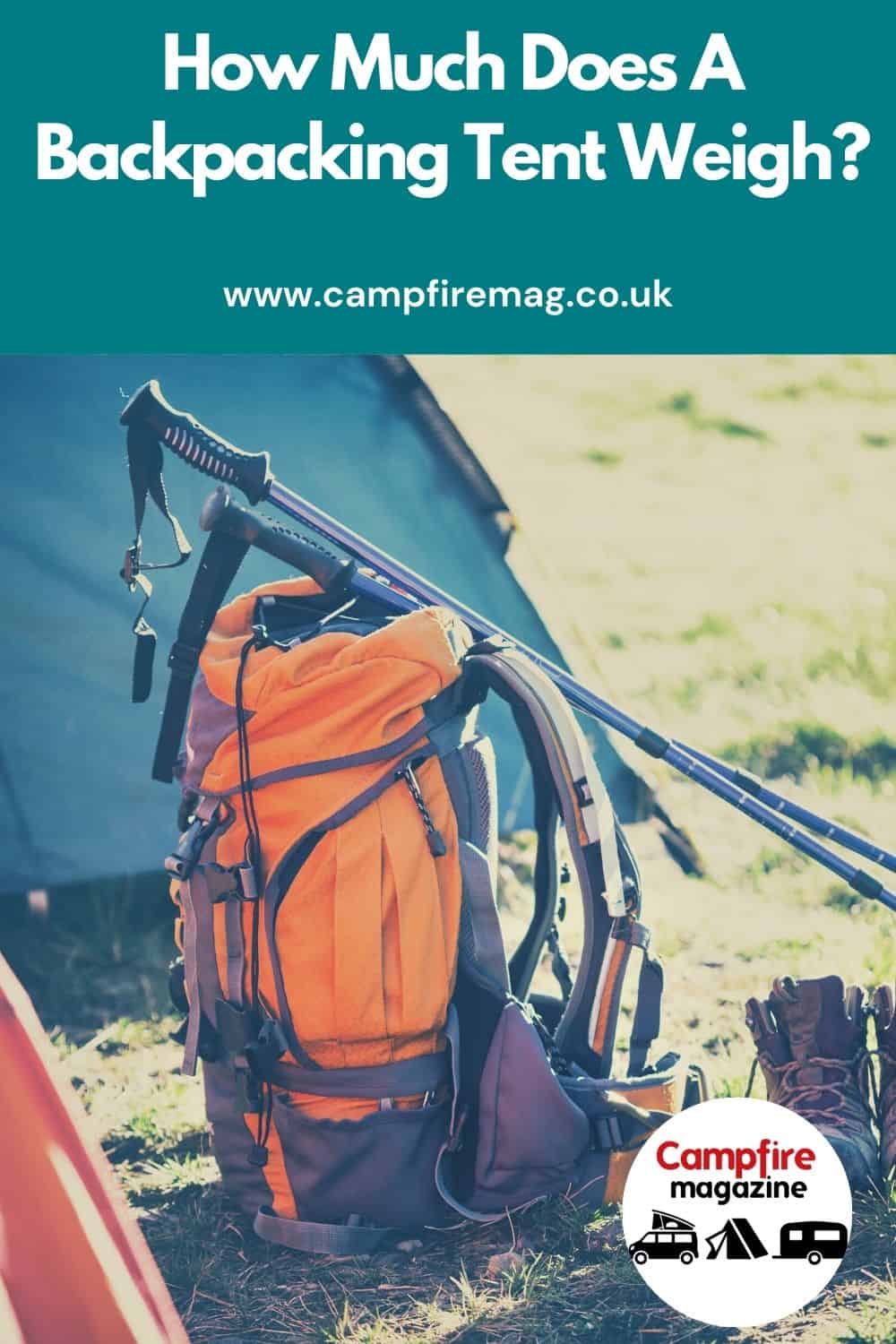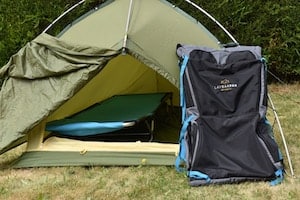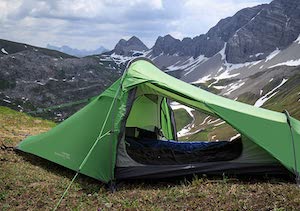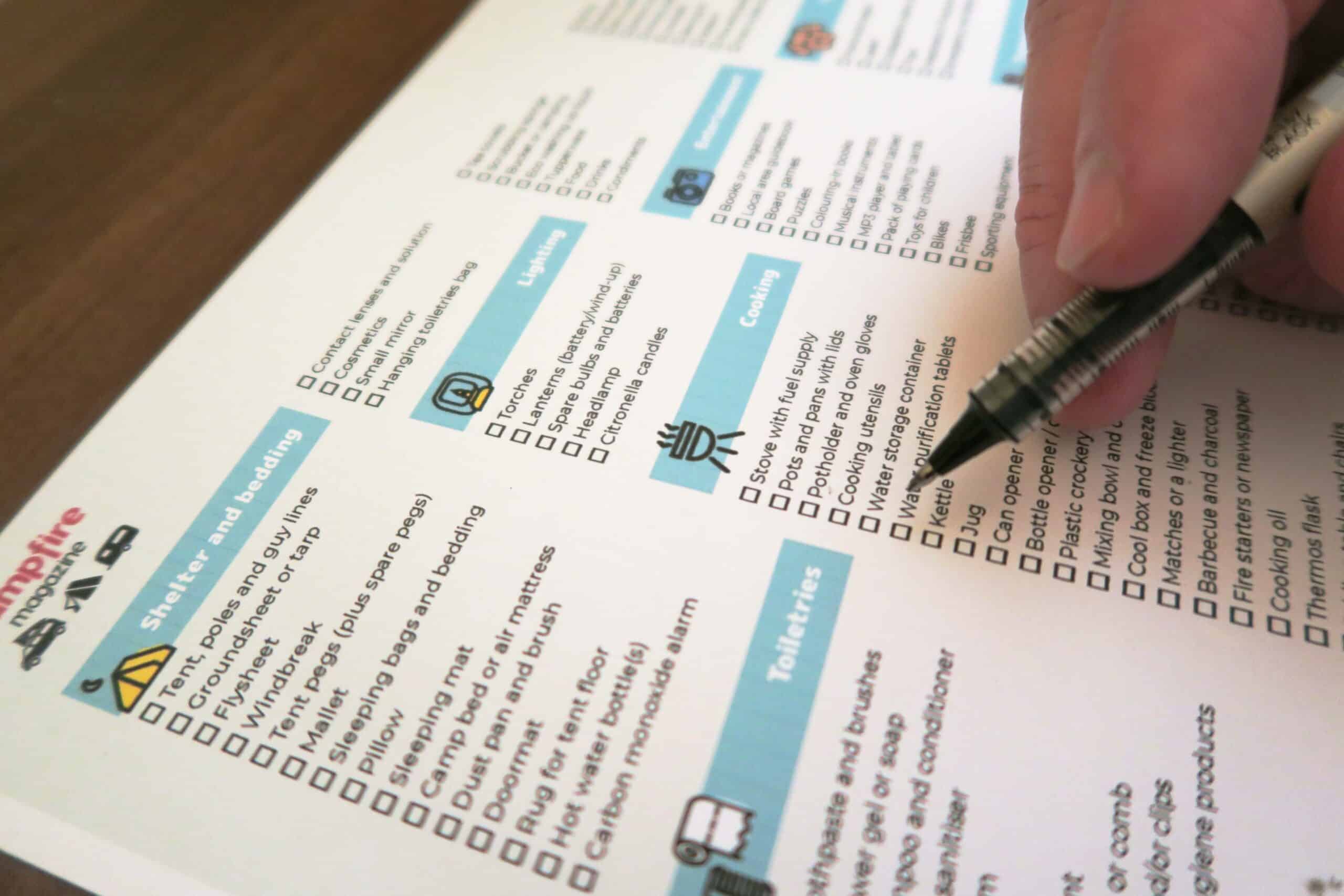If you want to explore the world and not miss a thing then what better way than backpacking? This is an adventurer’s dream but one thing that you have to remember is that you will need to carry everything you need on your back; and that includes your tent. You’re already going to have a lot of gear with you so the last thing you want is a hefty tent weighing you down.

Generally speaking, a backpacking tent should weigh no more than about 6 to 7 lbs. But of course, this largely depends on the type of backpacking tent you have chosen. There are some lightweight options that weigh as little as 1 to 2 lbs so these are worth looking at if you have a lot of other gear.
In the guide, I’ll be discussing the different types of backpacking tents and what to expect from them. I’ll also discuss some other key factors to consider when choosing the right tent for your next backpacking adventure.
Different Types Of Backpacking Tents And What They Weigh
As I have mentioned, there are several different types of backpacking tents and this is important to know when making a decision. Not all of them will be suitable for every adventure so let’s take a closer look.

Lightweight Backpacking Tents
One thing you should keep in mind about lightweight backing tents is that they are slightly more expensive than the traditional kind. This is largely because of how they have to be manufactured to cut back on weight. Generally speaking, these tents won’t weigh anymore than three to four pounds.
That said, they have other great advantages such as being incredibly easy to set up and very comfortable. If you’re going on a slightly longer trip or want to really save on how much you have to carry, a lightweight tent is probably worth the investment.
Ultra Lightweight Backpacking Tents
When you are heading off on a very lengthy adventure or are going to be moving across more challenging terrain, you don’t want a lot of heavy equipment. Moreover, you’re going to need a durable tent that can stand up to the demands of outdoor life.
Where conventional tents have a lot of often unnecessary components, the ultra lightweight backpacking tent is as standard as it gets. The materials are a lot more delicate but this means that the tent will usually weigh no more than two pounds. In some cases, these tents can weigh just a pound. What’s more, these materials are very robust so you won’t need to worry when you put the tent through its paces.
Traditional Backpacking Tents
Finally, there are traditional backpacking tents. These are by no means considered heavy pieces of equipment but they are markedly heavier than the ones we have already looked at. Usually these tents will weigh anywhere between five and seven pounds. That said, they’re very easy to use and are super robust for more demanding trails.
The obvious benefit of this type of backpacking tent is how affordable it is. Compared to the lightweight options, there’s a significant difference in price.
Can I Reduce The Weight Of My Backpacking Tent?
Even if you have an already lightweight tent, there is no harm in trying to make it even lighter. This will make hiking and trekking much more enjoyable. One of the best ways to do this is to switch up the poles.
A lot of tents come with heavier poles but by changing these for those made with materials like titanium, it can make a huge difference in the overall weight of the product. That said, doing this will cost quite a bit of money. Unless you are going to get a lot of use out of the tent, it might not be worth it. But there are other things you can do.
If you are camping with a friend, spouse or family member and don’t mind sharing a tent then it’s perfectly acceptable to split the weight between the two of you. Of course, you will need a two person tent which will normally weigh no more than 10lbs so carrying half each could make a difference.
You could do it so that one of you takes the fly and poles while the other carries the stakes and tent. You can divide the weight however you see fit as long as both parties are comfortable. That said, if you’re carrying a larger three or four person tent, there’s very little point in splitting it. It’s much better to have one of you carry the tent while the other carry other equipment.
What Is Trail Weight And Packed Weight?
As if there weren’t already enough complicated camping terms to get your head around, when buying a backpacking tent, you suddenly find yourself confronted with trail weight and packed weight. But what do these terms mean?
When we talk about trail weight, we are referring to the weight of the tent when it is set up; often called the minimum weight. This takes into account all components including the fly, poles and the main part of the tent.
On the other hand, the packed weight refers to additional equipment including the guy lines, sacks, stakes and any other bits and pieces that your tent may come with. But neither of these figures is ever really spot on and you will find that the true weight of your tent is typically between these two numbers.
Things To Consider When Choosing A Backpacking Tent
The weight of your backpacking tent is just one of the things you will need to think about when making a purchase. Things like where you will be camping, how many of you will use the tent and the weather can all impact your decision.
One Person or Two Person Tent?
Even if you have headed off on your adventure alone, you might still use a two person tent. This is because you will be able to have all of your belongings inside without and you won’t be cramped for space when you’re sleeping. Of course, you have to consider that the tent will be slightly heavier which could be a problem if you’re carrying lots of other gear.
If there are two of you then a two person tent is a must but as I mentioned earlier, you can carry different parts and split the weight.
With all that in mind, you must consider how far you’re planning to trek. If you’re going for a week or so then you won’t want to be constantly weighed down and so a one person tent might be a more sensible idea. Not only can it become uncomfortable carrying a lot of weight for long periods but it could cause an injury.
Single Walled Tent or Double Walled Tent?
If you have never camped before then this can feel a little confusing. Why would a tent need different wall types? Well the main reason is the weather and seasons. If you are camping in certain conditions, you will need more protection and that’s where a double walled tent comes in handy.
These tents are freestanding and as well as the tent itself, also come with what is known as a fly; essentially an additional layer of fabric designed to insulate the tent and keep it dry. In bad weather, it’s a must.
On the other hand, a single walled tent (one without a fly) is great for summer. What’s more, with the lack of that extra material, you won’t be as weighed down so when you’re looking for something lightweight, this is the obvious answer.
Price
One of the first things that most people want to know when it comes to buying camping equipment is how much it is going to set them back. You don’t want to buy a cheap backpacking tent that isn’t going to offer the quality or protection you are looking for. Similarly, there’s no point in forking out over the odds if you aren’t going to get a lot of use out of your tent.
You could easily pick up a backpacking tent for a couple of hundred quid but some can stretch into the thousands. It’s all about what materials have been used and the overall quality of the tent.
If you have problems with joint pain or stiffness, back pain and neck problems, then it might be worth spending a little more to get a much lighter tent. Otherwise, you could quite easily get one of the more affordable ones and not suffer too much.
3 Season Tent Or 4 Season Tent?
If you are someone that enjoys going camping no matter what time of year it is then you will probably want to opt for a four season tent. These are designed to withstand all types of weather conditions including wing, snow, cold and UV rays. However, because of this, they are typically a lot heavier. In some cases, a four season tent could weigh as much as 15lbs.
On the other hand, a three season tent is meant for all seasons apart from winter. Most people tend not to go out during winter so will find that this type of tent is more than suitable enough. What’s more, they are much lighter than their four seasons counterparts.

Conclusion
Choosing the right tent is absolutely essential especially when you are carrying your accommodation from one site to another, such as when you are backpacking. There is never a more important time to choose a tent that is light and won’t weigh you down and there are several to choose from including traditional, lightweight and ultra lightweight backpacking tents.
Of course, there are other things to think about as well, all of which can affect the overall weight of your tent. So try to think about where you’ll be camping, when and how many people will share one tent.

